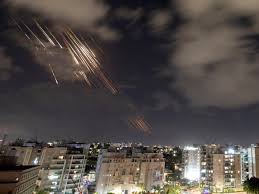Israel’s Attack Strategy Towards Iran: Recent Developments

Introduction
The ongoing geopolitical tensions between Israel and Iran have escalated in recent months, raising concerns about stability in the Middle East. As a nation that prioritizes security in the face of perceived threats, Israel’s military strategies against Iran have garnered significant international attention. Understanding these dynamics is crucial not only for peace in the region but also for global security.
Current Situations and Strategies
Recent reports indicate that Israel has increased its operations targeting Iranian installations, both within Iran and in broader regional contexts such as Syria and Iraq. These actions are largely a response to Iran’s growing nuclear capabilities, which many international observers believe could lead to the development of nuclear weapons. According to a statement from the Israeli Defense Forces (IDF) released in early October 2023, operations are being conducted to neutralize threats that could potentially target Israeli citizens.
Furthermore, in recent weeks, Israeli jets have conducted airstrikes against sites believed to house Iranian military assets. The Israeli leadership has made it clear that they view Iran’s military presence in Syria as a direct threat, and thus, will continue their offensive military stance. In a notable incident, a strike on October 10 reportedly targeted a weapon depot used by Iranian forces, demonstrating Israel’s readiness to take decisive action.
International Responses
The increasing military activities have elicited a range of responses from international stakeholders. While the United States has reiterated its support for Israel’s right to defend itself, European nations have called for de-escalation and diplomatic dialogue with Iran. The complexity of alliances and animosities in the region leaves the possibility of wider conflict always present. The Iranian government has vowed retaliation against what it deems ‘aggressions’ from Israel, stating that they are prepared for a defensive posture that includes potential responses not only within their territory but against any Israeli interests abroad.
Conclusion
The situation between Israel and Iran remains precarious and dynamic, with implications that extend beyond their borders. Analysts suggest that the Israeli leadership will continue to view Iran as a significant threat, especially with the ongoing debates surrounding Iran’s nuclear capabilities. The forecast indicates that both nations may enter a cycle of retaliation unless substantial diplomatic efforts are undertaken to mediate tensions. As observers of the international landscape, it is vital for Canadians and global citizens alike to monitor developments in this region, as any escalation could have far-reaching consequences.









